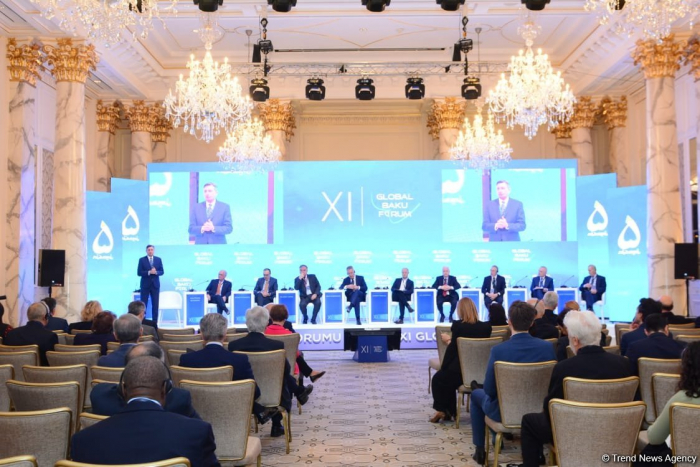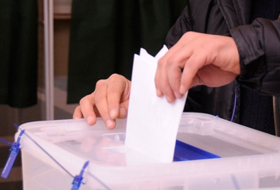Serving and former leaders met under the principles of solidarity, equality and inclusivity to exchange and find global solutions to global problems.
World leaders, decision-makers and policymakers came together at the 11th Global Baku Forum in Azerbaijan to discuss shared concerns.
President of Azerbaijan Ilham Aliyev welcomed over four current and 40 former presidents and prime ministers. “If we compare what we discussed last March and what we are discussing today we see substantial changes. Geopolitical changes,” he said.
This was a sentiment echoed by President of Albania Bajram Begaj who called for a “unified response" to global challenges. “Indeed, we are living in unprecedented times. A lot is going on. We have political instability. We have economic disparities. We have climate change. We have health challenges. Of course, education. We have social injustice. But those challenges we are facing cannot be dealt (with) alone,” he said.
The theme of the event was “fixing the fractured world” and there were resounding calls to modernise outdated institutions and for global governance.
“We are in a situation where the world has dramatically changed over the last 70 years and we are still living in a world with an architecture that has been designed a long time ago,” said Jean-Claude Trichet, former president of the European Central Bank and former governor of the Bank of France.
He also gave a stark warning about the state of the global economic order, saying: “We are living in a highly dangerous financial and economic world, that, with some indicators, is even more fragile than it was immediately before the last big (financial) crisis.” He added that Europe needs to catch up with the rest of the world and “reinforce the functioning of the continental institution”.
Winnie Byanyima, executive director at UNAIDS and under-secretary-general of the UN believes that debt restructuring needs to be addressed when it comes to fixing global economies. She told Euronews: “All our economies are tied together now. Low-income countries are choking in debt, unable to pay for the health of their people, for the education of their children. There’s no system where you can get quick debt restructuring and get your country back on its feet.” She added that these problems “can only be solved globally”.
There was substantial dialogue around the global conflicts in many parts of the world, with Albanian President Bajram Begaj saying: “Peace is priceless. We can do everything to increase our capabilities in order to have more security in our continent. And, of course, I come from a region that is very fragile, and the situation of the war in Ukraine is bringing the people there to think more about co-operation and dialogue.”
Topics such as AI, innovation, and global health challenges also dominated the agenda. Najat Mokhtar, deputy director general at the International Atomic Energy Agency and head of the Department of Nuclear Sciences and Applications participated in a panel discussing “health for all”. She told Euronews: “We need resources … We need data also. We need information.”
Euronews
More about:
















































